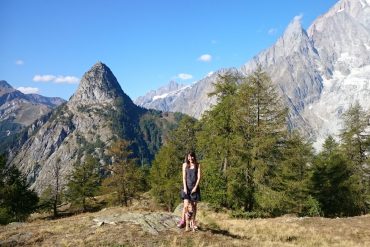I love slow travelling. If I stay for at least a few months in one location I get to integrate more with the local community, I believe it is a more sustainable way to travel and it is easier for me to give something back too. When I was in Spain in 2016 I got involved with a local doggy charity and I have done the same now that I am in Italy.
My travelling is predominantly in Europe. It means that I can bring my much-loved dog, Annie, along with me. This has resulted in me doing very little travelling out with this part of the world since my much younger, non-doggy days though.
In 2019, I may not be able to slow travel outwith Europe but I hope to spend a few weeks a bit further afield and experience some different cultures and landscapes. I am keen on using my trip as an opportunity to volunteer with a reputable organisation.
Volunteerism holidays have rapidly grown in popularity over the last few decades. Whilst the intent behind them is admirable and, in the main, it is a positive style of holidaying, the increase in demand and lack of regulations means that it is an industry that is open to bad practice.
This can result in a poor experience for the holiday maker but also, crucially, it can have a negative impact on the communities or environments that it is claiming to support. I wanted to ensure that I avoided this.
So, I started my research. Once I really started to delve into the industry, the arguments surrounding it are so complicated it actually had me tied in knots, feeling judged and questioning if it was a good idea to do this sort of trip at all.
Having read around the pros and cons I have come to the conclusion that, providing I make sure that I select an appropriate project, this is absolutely still worth doing and that I shouldn’t be feeling that it is in any way inappropriate!
As mentioned in a report by the Journal of Sustainable Tourism, if this type of holidaying is done properly it has the potential to be a true “influence for positive social change, and perhaps becoming the ultimate sustainable form of tourism” .
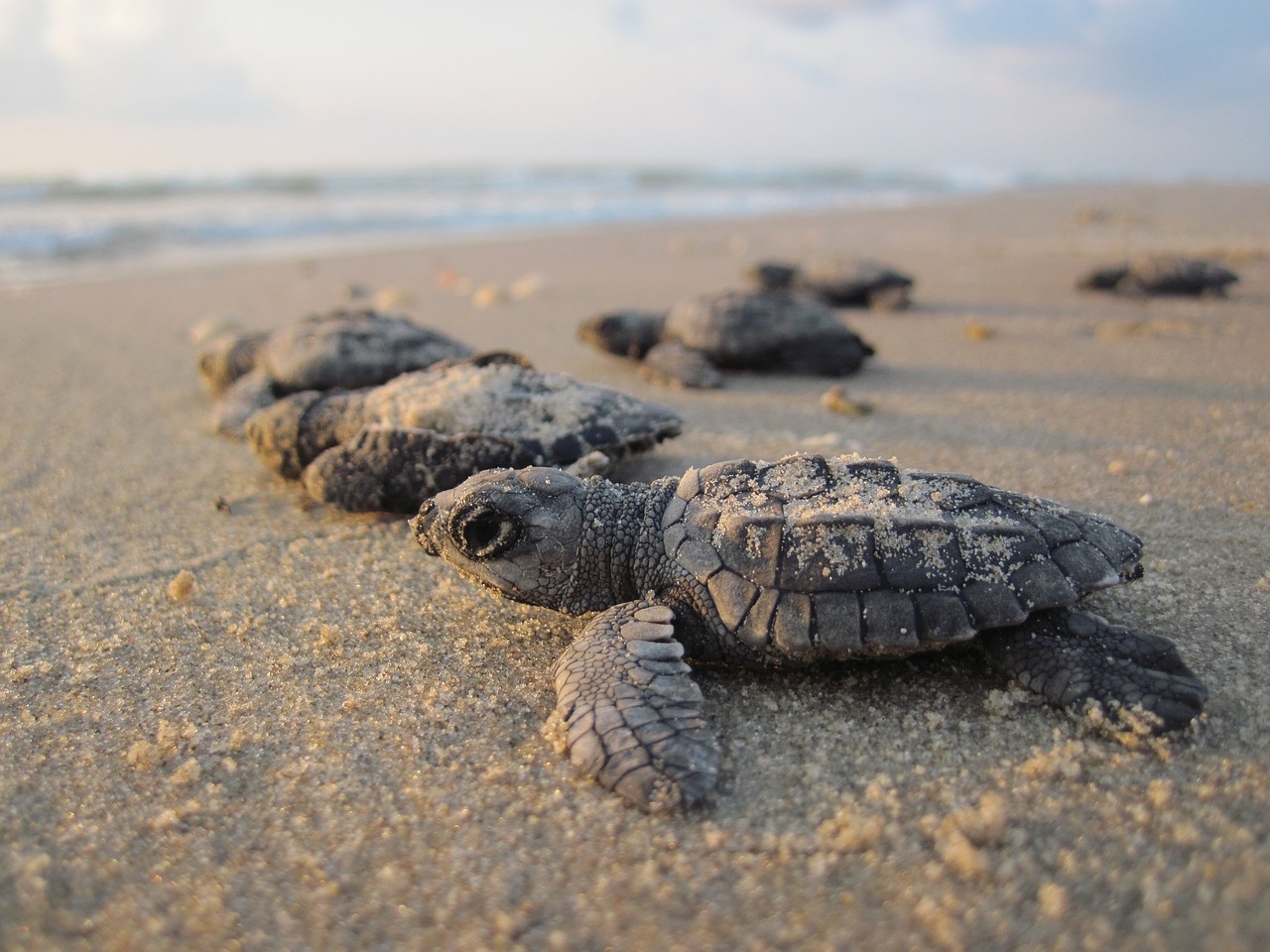
There are some fantastic Voluntourism opportunities out there but it is all about doing your research and matching well with your skill set
I do recognise however the importance of raising awareness of the bad practices too and I thought I would pull together this article to explain some of the topical issues and considerations that I uncovered along the way in the hope it may help others too.
What is the difference between ‘Voluntourism’ and Volunteering abroad?
This is a tricky one as I don’t think there is an official definition of ‘Voluntourism’ but rather it is a term that has evolved over the years and is used in a variety of circumstances.
I think that there is a general consensus that Voluntourism refers to a shorter term commitment (1 – 3 weeks for example) where an individual offers their time to a project or community as part of their travelling experience. Often the individuals will be providing general help rather than offering a specific skill set.
Volunteering is usually a longer-term commitment, often utilising a specific skill, and/or receiving more in-depth training.
Is long-term volunteering always more valuable than short-term ‘Voluntourism’?
It is often argued that long term volunteering is much more meaningful than the short-term option. There is no denying that an individual is likely to give back a lot more over a longer duration, that their skills and knowledge will broaden and their connection with the local communities is likely to be stronger but, I think it is unfair to then suggest that shorter term ‘Voluntourism’ options cannot be of great value too.
For example, there are a lot of well-run conservation projects that short-term volunteers can provide real value towards. In fact, some of the projects would not be feasible without the assistance of these types of volunteers. They may be involved in data input or clean-up initiatives. These jobs are crucial but they require minimal training and it does not have an impact on any individuals if those fulfilling the tasks are transient.
Teaching, on the other hand, is not usually a good option for short-term volunteers as individuals are not able to build the bond or continuity that the students need to benefit but, if you have skills in this area, perhaps you could be helping develop lesson plans or producing class materials in a shorter term volunteering stint.
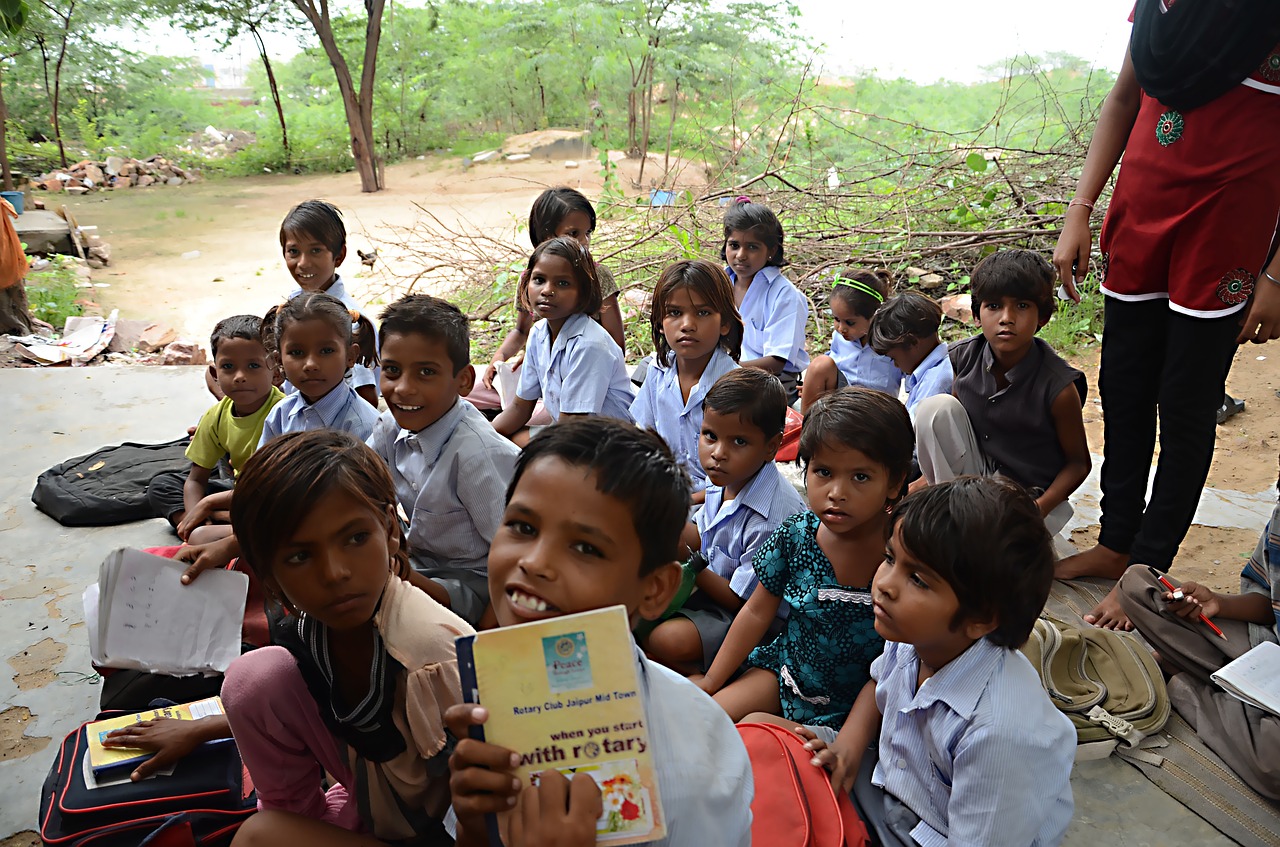
If you are keen to be involved in a teaching volunteer programme, it is more beneficial for the children if this is a longer term position
The problem with the profitability of Voluntourism
I believe it is a good thing that in the last thirty years there has been a growth in the popularity of this type of holiday.
With this demand though, it means that there has been a rise in the number of organisations offering to provide this type of trip and, as there are no regulations at present, the level of service can vary greatly.
Of course, there are many reputable commercial booking operators out there but there is a danger that individuals can end up paying for nothing more than an expensive holiday or a poorly organised, non-value adding initiative where most of the money is retained by the booker rather than going back to the community it purports to support.
“Why do a lot of organisations ask for payment in the first place? Surely you shouldn’t have to pay if you are volunteering your time” ?
If you are volunteering on a project through an agency they will expect a fee. I have heard travellers express surprise at this. ‘Surely if I am volunteering my time, I should not have to pay for the privilege?’. This is an unfair assumption. Charities can rely on these fees to cover the cost of your accommodation, food and training and it also often goes towards general project fundraising.
For credible booking agencies, their margin will cover their running costs and ensure that they have the budget to thoroughly research the projects they are endorsing.
Make sure that any fee you do pay is being used in the most appropriate manner
The Journal of Sustainable Travel released a report back in 2014 that suggested that some of the more expensive companies that are involved in offering Voluntourism experiences are those that give the least back to the communities and often organise experiences that do not provide true worth to the areas they are focussed on.
Look for pricing transparency. You want the organisation to willingly divulge how the fee will be used. Whilst it is, of course, fair that a company that organises the trip would want to take a cut, this should be proportionate and not at the expense of the community they are supporting or the volunteers that have paid the fee.
GivingWay is a great resource. They connect would be volunteers with reputable not for profit organisations across the globe and any fees paid go directly to this work. They do not take a fee directly.
People and places offer a very transparent pricing structure and won the best responsible tourism campaigning award in 2013.
GVI also have a good reputation within the industry. More than 65% of their fees go back to the projects they are supporting and their focus is on measurable, high impact projects.
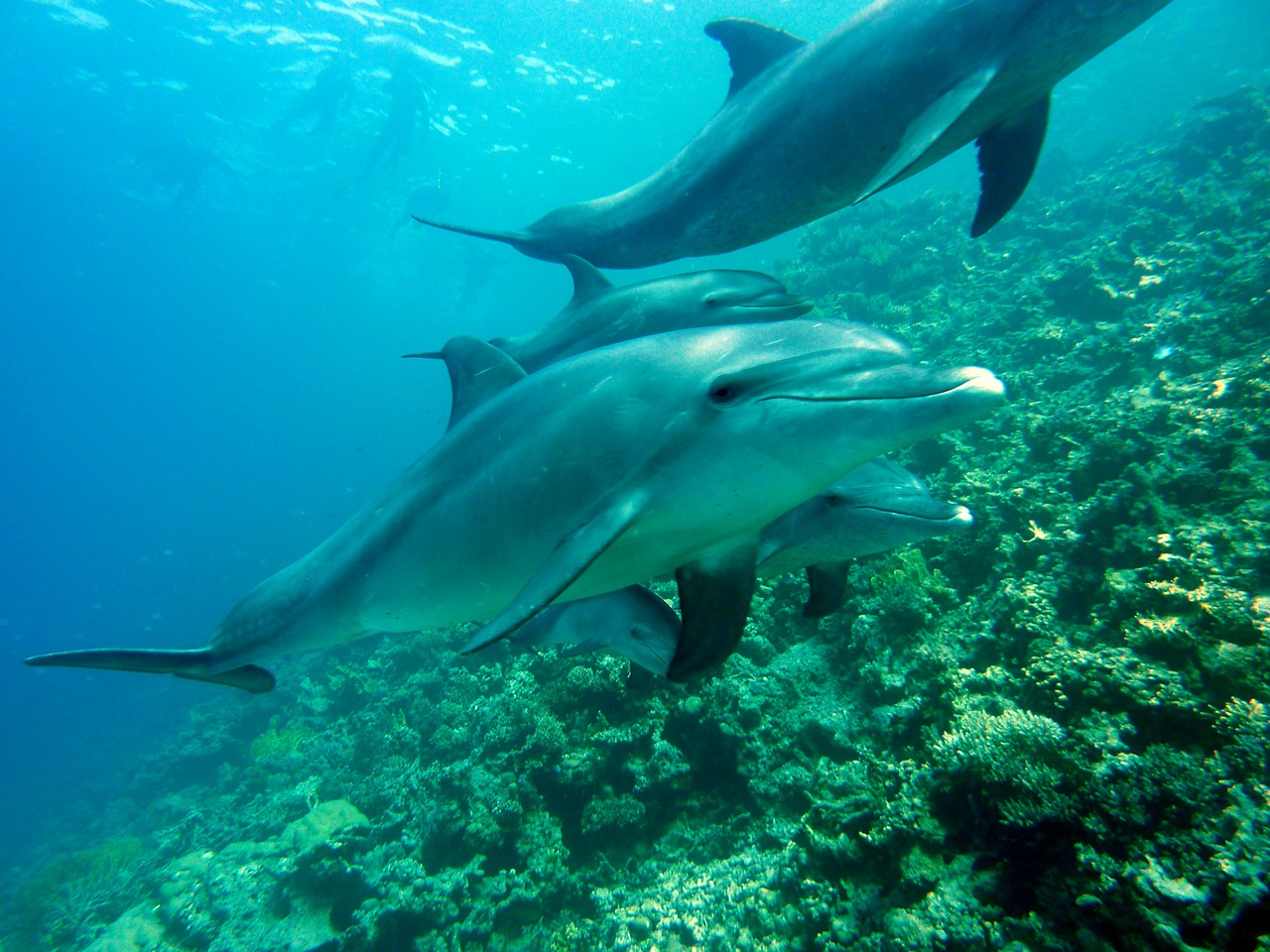
GVI have a good reputation for a variety of projects, including short term marine conservation opportunities
Does the organisation actually evaluate the success of their projects?
A study done by The Journal of Sustainable Tourism in 2017 suggests that not enough companies actually do this.
Always look for evidence that the company you are booking through has measured the success of any established projects that they promote. Why would you want to take part in something if you don’t know if it is having any measurable benefit on the ground?
Organising directly is an option – just make sure you do a ton of research
You don’t always need to work with an agency to organise a volunteering trip. You can contact charities and NGOs directly. It is just that I would recommend you do a ton of research on the project and the type of work it is doing before you head off.
Always look at the reviews when they are available, check out any social media platforms and look for any mentions in the general press. Be aware that reading reviews is not enough in itself though, deeper research is often required. Further down in the article I have produced a handy checklist to help you further evaluate the appropriateness of a project or company.
Consider the impact you will have on the local communities
If the project is well managed, the benefits for the local community as well as the participant are generally recognised to be strong as suggested by this 2007 study by the Journal of Sustainable Tourism.
The Journal also conducted a study in 2016 analysing the success of a for-profit environmental project in Costa Rica that predominantly involved gap year students staying with local host families. The Study suggested that this well-organised project was a success and that there were visible social benefits for both the volunteers and the community they were living with.
Some projects, however, have received criticism as it is believed that the work that the volunteers are doing is not beneficial, could be taking away paid jobs from the local community or that the individuals have looked down on or been disrespectful of local customs and traditions.
Writer Pippa Biddle told of her experience volunteering as a teen on a project in an Orphanage in Tanzania. The girls were trying to build the walls for a new library but at the end of every day, the men would come in and redo the work that was done as the volunteers had absolutely no building skills and their work was way below standard. She said “It is likely that this was a daily ritual. Us mixing cement and laying bricks for 6+ hours, them undoing our work after the sun set, re-laying the bricks, and then acting as if nothing had happened so that the cycle could continue.
Basically, we failed at the sole purpose of our being there. It would have been more cost effective, stimulative of the local economy, and efficient for the orphanage to take our money and hire locals to do the work, but there we were trying to build straight walls without a level.”
This is a prime example of a project not being well run. The volunteers clearly didn’t have the appropriate direction or skill sets for the task they were doing and the local community would have a negative impression of those involved in the project. Whilst many of the volunteers would have had the best intentions this is certainly one of those examples that gives Voluntourism a bad name! Interestingly though Pippa’s experiences obviously shaped who she is today and she continues to be involved in more effective, grassroots projects.
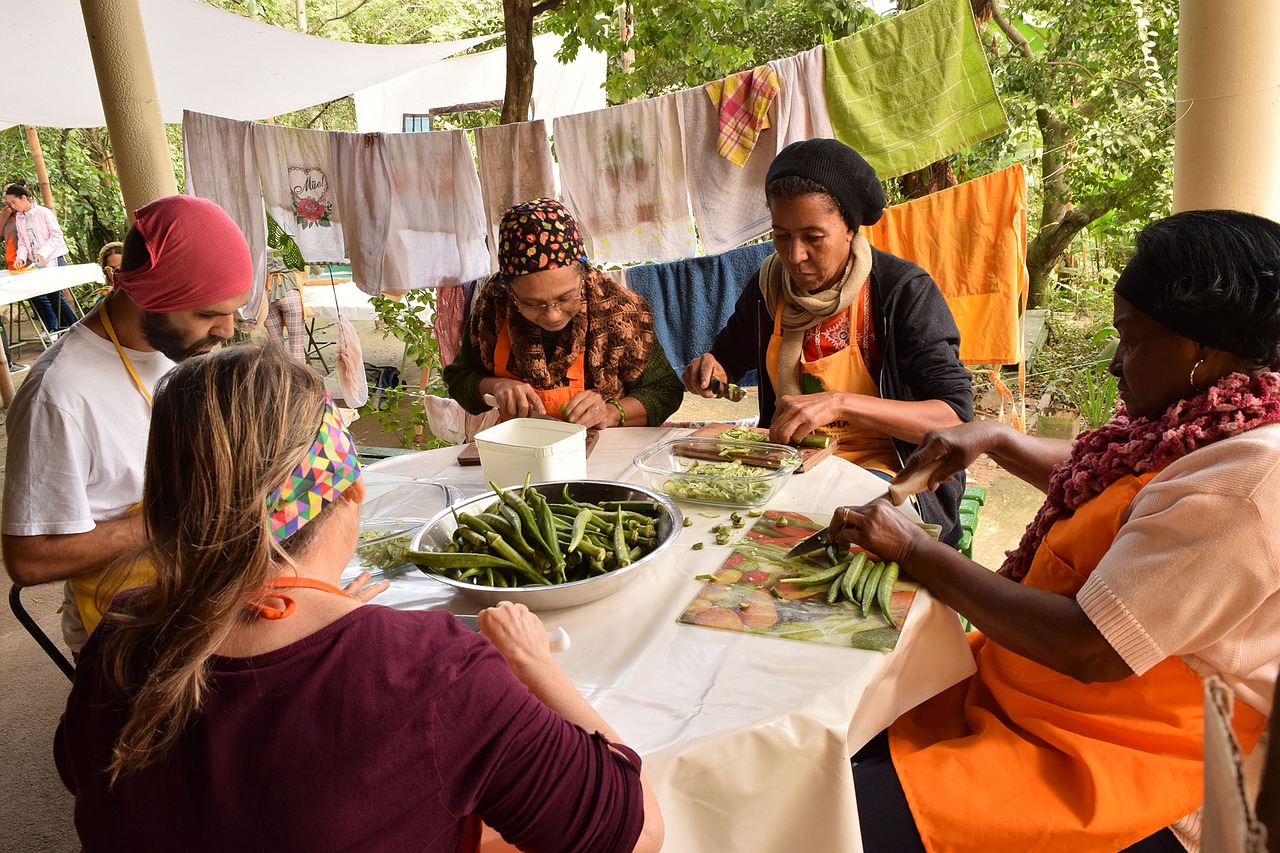
Projects that work closely alongside the local community in an empowering fashion, like this permaculture project are recommended
The neo-colonialism debate
There is a documented argument that badly run, agency based Voluntourism projects can actually create a divide between local communities and the western volunteers that come in to take part. It is seen as a form as neo-colonialism and, even if this is unintentional there can be misunderstandings between the cultures and cultural stereotypes can be strengthened.
For those companies that are using the initiatives purely as a profit maker for themselves with no thought for the ethics and true value behind the projects, this is all the more of a valid argument. This is especially true when the companies market the projects in terms of the volunteers being benevolent givers and the helpless locals will be the grateful receivers.
This argument is heightened when volunteers may be doing the trips for the wrong reason. If you are only signed up to ensure that you get an appropriate tick on your CV this is perhaps the wrong reason. Whilst personal development is a perfectly reasonable expectation of a volunteering project, if it is your only motivation and you are not truly engaged in the project then not only are you likely to not enjoy the trip but your input may not be as valuable and your integration with the local community could be minimal.
There will, of course, be individuals that may be less willing to have a culturally immersive experience but to then suggest that this is a reason not to have volunteering holidays seems unfair to me.
This is why it is important to thoroughly research any company you may book a trip through, make sure you have an appropriate skill set for the job you are signed on to do and it is important to be respectful of local customs and traditions.
A desire to do good and further your personal development is not a negative though
There is often criticism that these types of Voluntourism trips are more about what the individual volunteer will get rather than the community and that it is all about a self-centred desire to feel you are making a difference.
I think this is a bit of an unfair statement. Surely there is nothing wrong with wanting to try to give back, as long as it is done in an educated and appropriate way.
The 2016 Study conducted by the Journal of Sustainable Tourism, reported that the individuals that were involved in the environmental project in Costa Rica had often chosen to come on the trip, in part, as personal development. The experience would be used on their CV. The study also reported however that the participants then had better awareness and increased concern for social and environmental problems going forward and that in many cases it influenced future career paths and more meaningful connections with local communities.
Orphanage volunteering is a hugely problematic area
One of the most well documented and horrendous examples of Voluntourism gone wrong are the growing number of cases of orphanages that accept volunteers that have been found to be involved in child trafficking. There have been many reported cases of children being kidnapped from their families and put into these facilities. They are then kept deliberately with a poor standard of living to engender further sympathy from very well-intentioned visiting volunteers in the hope of raising more funds.
Cambodia is one country that has reported an escalating problem with unethical orphanages. In 2017 a report was released by the Cambodian Government that suggested that 80% of the children in these institutions were not actually orphans.
There is also the argument that, even in orphanages with a higher standard of care, that short-term volunteering can often be more harmful than helpful as children can become confused and upset as they are just beginning to form meaningful and trusting bonds with individual volunteers when they move on.
This article from Responsible Volunteering uses a case study from an orphanage is Nepal to highlight how to spot unethical practices.
If you want to support children in Cambodia or Nepal or other areas that are seeing a problem with unethical orphanages, look for well run community and education projects instead
Is it fair to say that, if you want to volunteer you should just do it at home?
I have read a number of organisations that are generally critical of volunteering holidays saying that if you want to volunteer then you would be much better off doing that at home.
I don’t agree with this argument. Whilst, of course, there are lots of wonderful volunteering opportunities in your home country, why does that mean that you should not want to also give your time or skills to other regions. If you are going to be visiting an area anyway, could we not argue that it would be better to have a more genuine culturally immersive experience than being a simple tourist?
Other things to look for when considering a ethical Voluntourism trip
Get in touch with previous volunteers
If you know individuals that have been involved with a project, ask them about their experiences.
I have been considering volunteering at the Elephant Nature Park in Thailand. I was inspired after one of my friends documented her two volunteering trips. The Park is highly respected and regarded as pioneering in their work with rescuing captive elephants. They also have a dog rescue centre that you can volunteer at too. They are regarded as an example of how the ethical tourism route should be.
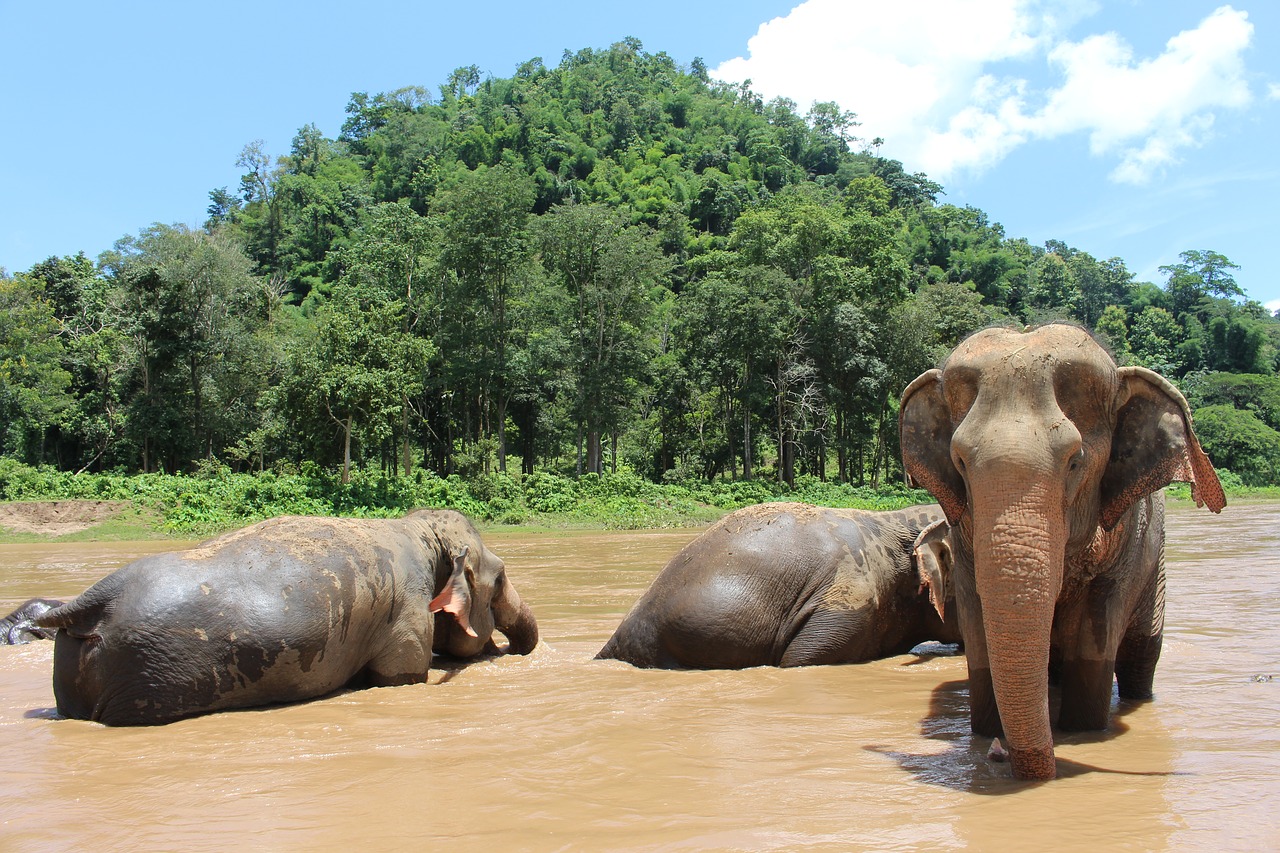
Elephant Nature Park in Thailand has a fantastic reputation for the work they do and the volunteer experience they provide. Be prepared for hard work though!
Ask questions about the project goals
You are looking for a project that has sustainable and long-term effects. Don’t be shy about asking for more information.
Is the project managed by skilled professionals?
If it is a conservation project are there veterinarians, biologists or ecologists involved? If it is an educational programme are there qualified teachers and experts involved? Without those with the appropriate skills and knowledge guiding a project, it could be a recipe for disaster for you and, more importantly, for the community it is supporting.
Make sure you are not taking jobs away from local communities
Many projects, like the Elephant Nature Park, also have paid positions but these are always filled by locals. It is important to ensure that you are not conducting work where there would be an opportunity for a paid local to do this instead.
Be realistic about your skills and your personal desires
If you don’t think you have the skillset or characteristics for a certain project be realistic. Some projects will involve staying with a host family or living in very basic shared accommodation. If this is not the sort of thing you could adapt to, be honest. It is unfair on your fellow volunteers and the local community if you cannot adjust to this type of living.
Tell me about your volunteering experience
I would love to hear about your volunteering experiences, good or bad.




